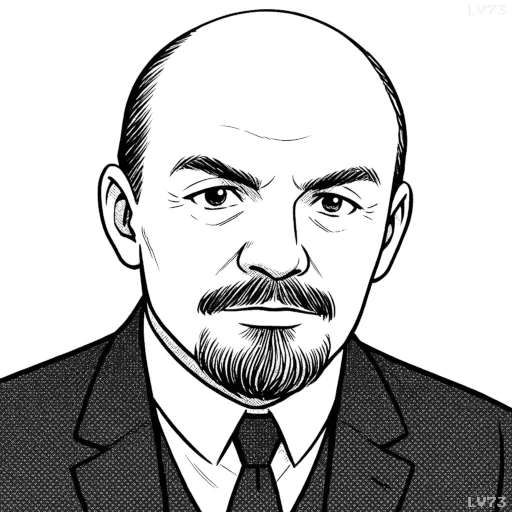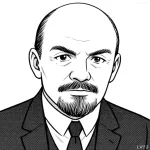“When there is state there can be no freedom, but when there is freedom there will be no state.”

- April 22, 1870 – January 21, 1924
- Born in the Russian Empire
- Revolutionary, political theorist, lawyer, state leader
table of contents
Quote
“When there is state there can be no freedom, but when there is freedom there will be no state.”
Explanation
This quote reflects Lenin’s belief in the relationship between the state and freedom, particularly within the context of socialism and revolution. He argues that the state, as an instrument of class power, inherently restricts freedom because it exists to enforce the interests of a ruling class — whether that be the bourgeoisie under capitalism or the proletariat in a socialist society. According to Lenin, true freedom can only be achieved in a stateless society, where class divisions are abolished and everyone has equal access to resources and opportunities. This ideal is closely tied to his vision of communism, in which the state would “wither away” as society reaches a point of genuine equality and self-governance.
Historically, Lenin’s concept of the state was rooted in Marxist theory, which posits that the state is a temporary necessity during the transition from capitalism to socialism. Under socialism, the working class would use the state to dismantle capitalist structures, but the goal would always be to create a classless, stateless society. The “withering away of the state” was central to Lenin’s vision of communism — a society where cooperation and mutual aid replace coercive authority, and where freedom means the absence of domination or hierarchy.
In modern terms, this quote continues to spark debates about the role of the state in achieving freedom. While some advocate for the abolition of the state in favor of anarchist or non-state-based forms of governance, others argue that state power is necessary to protect individual rights, maintain public order, and ensure equality in a complex, diverse society. Lenin’s quote raises questions about the balance between state authority and individual liberty, and whether genuine freedom can exist within a state apparatus, or if true freedom requires its ultimate dissolution in favor of self-governed, decentralized communities.
Would you like to share your impressions or related stories about this quote in the comments section?

